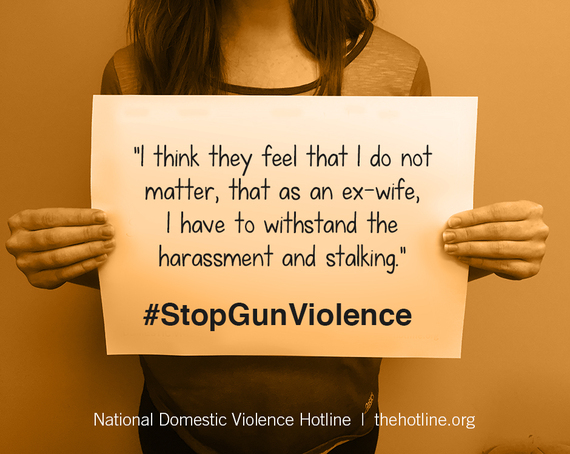When is it appropriate to use domestic violence as a metaphor in politics? The answer: NEVER.
Unfortunately, some members of Louisiana's political community engaged in the gubernatorial race don't seem to know the correct answer, and it's time that they learned it. Scoring political points by using an analogy that belittles the agony of domestic violence survivors is unworthy of any politician.
The lieutenant governor of Louisiana, a Republican, endorsed the Democratic candidate for governor instead of the Republican gubernatorial candidate. To express its irritation with the lieutenant governor, the St. Tammany Republican Parish Executive Committee wrote an open letter describing his defection as the equivalent of "a jilted man, firing indiscriminately at his ex-wife's car."
This analogy is damaging to millions of people who experience domestic violence in the US each year. To flippantly compare a campaign endorsement to an act of domestic terrorism ignores the tragedy of such victimization. For a victim of domestic violence, the threat of dying from firearms violence at the hands of an abuser is a terrible reality.
A recent survey conducted by the National Domestic Violence Hotline (The Hotline) of people who contacted the organization found that 67 percent of the respondents believed that their abusers were capable of killing them. Ten percent reported that their abusers had actually fired a gun at them during an argument. You can imagine how these respondents would feel hearing a politician use the terror of their situation as an inept political metaphor.
Domestic violence abusers do not act impulsively; each one engages in a long history of abusive actions against an intimate partner. Each act is meant to undermine the victim's sense of safety and even sanity until the abuser has controlled or coerced the victim into submission. The acts that abusers engage in encompass some of the most serious crimes on the books: attempted homicide, rape, arson, strangulation, aggravated assault, threats with a deadly weapon and kidnapping. Abusers do not undertake these criminal acts lightly, and victims of these crimes suffer greatly.
Some of the people in the lieutenant governor's party may not respect his choice to support a candidate from the rival party. They are entitled to that opinion. But, they are not entitled to belittle the suffering of victims of domestic violence by equating a political choice with one of the most horrendous acts that can be committed by one intimate partner against another.
How can we even hope to end domestic violence if leading members of our society refuse to recognize it as a serious crime? We need our political leaders to think about how their words affect domestic violence victims who often suffer in silence. We need them to talk about how they will strengthen the justice system and social services responses so that domestic violence victims and their children can find safety and stability. We need to know how they will ensure that abusers will be held accountable. What we don't need is for our political leaders to use domestic violence as an analogy to disparage other politicians.

